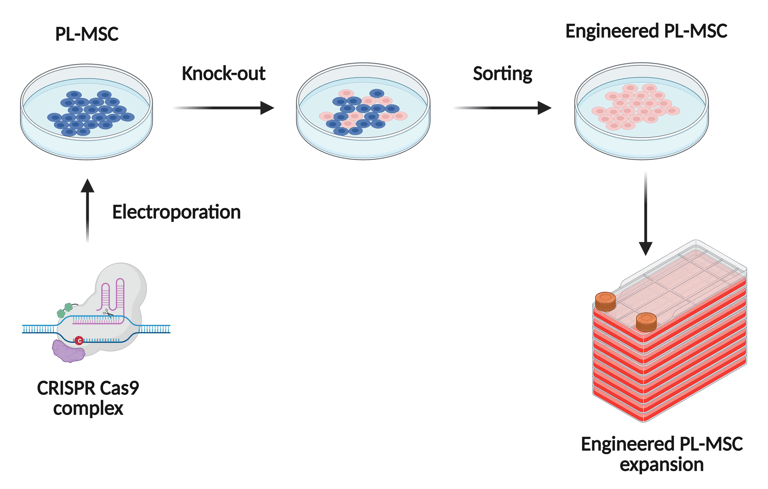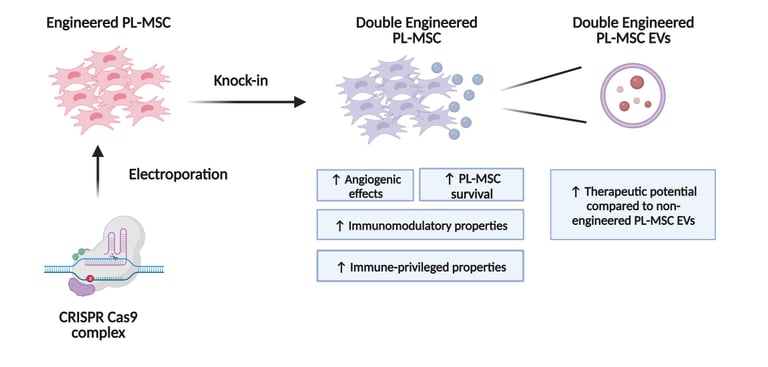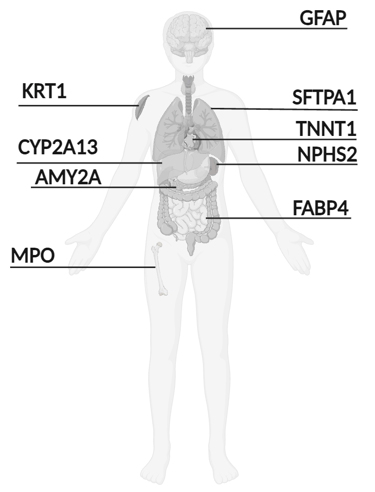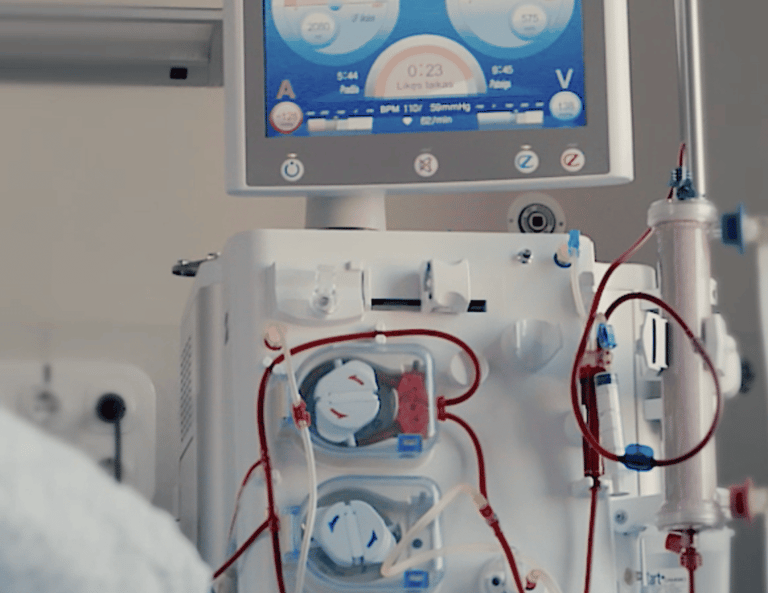
Engineered Cell Platform
Enhancing placental mesenchymal stromal cells to treat various chronic diseases
ENGINEERED PLACENTAL MESENCHYMAL STROMAL CELLS PLATFORM
The KELI-300 platform represents our innovative approach to cell-based therapy, where we implement a simultaneous yet distinct three-step process to enhance the efficacy and specificity of placenta-derived mesenchymal stromal cells (PL-MSCs). This process is meticulously designed to genetically modify these cells, ensuring that they are optimally prepared for therapeutic applications.
Immune-privileged PL-MSC Generation
The first step involves the application of CRISPR-Cas9 technology to genetically modify PL-MSCs. We specifically target and knock out the gene responsible for coding human leukocyte antigen (HLA) class I molecules. This crucial modification aims to render PL-MSCs immune-privileged, significantly reducing the risk of immune rejection following transplantation.


PL-MSC Potency Modulation
Building on the immune-privileged cells created in Step I, the second step involves strategic genetic enhancement. We introduce anti-inflammatory proteins into PL-MSCs to amplify their inherent immunomodulatory potential. This dual-step genetic engineering process is designed to produce PL-MSCs that not only evade immune detection, but also possess enhanced capabilities to modulate the immune response, making them more effective for therapeutic use in a variety of diseases.


Tissue-specific PL-MSC Targeting
The final step of our approach focuses on directing modified PL-MSCs to specific tissues. We achieve this by introducing a single-chain variable fragment (scFv) that targets a tissue-specific protein. This addition is intended to significantly enhance the ability of PL-MSCs to home in on and accumulate within the target organ or tissue. The incorporation of scFv enables the precise localization of PL-MSCs and optimizes their therapeutic impact. This step is crucial for ensuring that genetically enhanced PL-MSCs can effectively reach and exert their therapeutic effects at the desired anatomical site, marking a significant advancement in localized cell-based therapies for various medical conditions.


Engineered cell platform KELI-300 is currently investigated for chronic conditions
Chronic Kidney Disease (CKD) is a condition that gradually impairs the kidney function. As the ability of the kidneys to filter waste and excess fluids from the blood decreases, it can lead to various health issues. CKD is often asymptomatic in the early stages and can progress to end-stage renal disease if left untreated, necessitating dialysis or kidney transplantation.
Our approach involves CRISPR-Cas9 gene editing of PL-MSCs to specifically target and combat the underlying causes of CKD. This includes addressing issues such as fibrosis, inflammation, and impaired cellular repair processes within kidney tissue. By directing these enhanced PL-MSCs to specific regions of the kidney, we aimed to not only halt the progression of CKD but also potentially reverse the damage caused by the disease.
This innovative approach represents a significant advancement in CKD treatment and offers hope beyond traditional symptom management.
CHRONIC KIDNEY DESEASE


